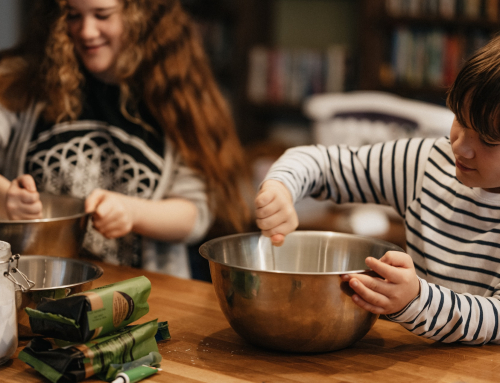Child counseling is a type of therapy that focuses on supporting children who are suffering from mental illnesses, dealing with a stressful or dysfunctional home life, or who have witnessed or undergone a traumatic event.
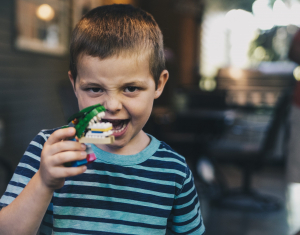 Many of the issues mimic those that adults face – anxiety, depression, grief, etc – and the objective of counseling is to break problems down into manageable parts so that children can better understand them, learn coping strategies, and overcome hurdles to psychological wellness.
Many of the issues mimic those that adults face – anxiety, depression, grief, etc – and the objective of counseling is to break problems down into manageable parts so that children can better understand them, learn coping strategies, and overcome hurdles to psychological wellness.
Child counselors are qualified mental health specialists who are trained to understand how children’s minds work and who have the ability to recognize, identify, assess, diagnose, and treat a wide range of conditions. Children seldom recognize issues themselves, and even if they do, will often not share their concerns with parents. Glendale Christian Counseling offers compassionate guidance to help children navigate challenges and thrive emotionally and spiritually.
This is not because they do not love their parents or share a solid relationship built on trust, but because they cannot make sense of it themselves and do not have the language to express their feelings. They may also experience a sense of internal shame and fear of disappointing those they love with their negative emotions.
Counselors can work together with parents, sharing insights as they help children interpret what they have experienced or are experiencing in a way that they can process and understand. When a child’s psychological distress is left untreated, it can impact every area of their life, including their developmental milestones, education, social growth, and more. The struggles will also persist into adulthood, so if you are concerned about your child’s mental state in any way, it is worth considering the benefits of child counseling.
How Do You Know if Your Child Needs Counseling?
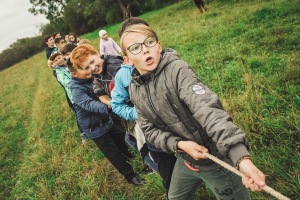 If your family or your child has experienced any traumatic event, it is important to schedule an appointment with a child counselor, even if the child is not showing any visible signs of distress. Alternatively, if you notice a sudden or dramatic change in your child’s behavior or just certain elements that seem out of character, it may point to an underlying issue. Some common signs of emotional distress include:
If your family or your child has experienced any traumatic event, it is important to schedule an appointment with a child counselor, even if the child is not showing any visible signs of distress. Alternatively, if you notice a sudden or dramatic change in your child’s behavior or just certain elements that seem out of character, it may point to an underlying issue. Some common signs of emotional distress include:
- Aggression
- Poor adjustment in new or social situations
- Sleep difficulties, nightmares, and terrors
- Academic decline
- Worry and anxiety
- Withdrawal from previously enjoyed activities
- Weight loss or a loss of appetite
- Spending time mostly alone
- Physical complaints, despite a medical report from a health professional
- Lack of bladder control
- Self-harm practices, such as cutting oneself
Common Issues Addressed in Therapy for Children
Child counseling aims to help your child learn tools, techniques, and methods that can better prepare them for the challenges they face and might face in the future. While it will vary depending on the child and their specific issue, the common goal of child counseling is to help them successfully cope with a variety of situations:
Anxiety
By teaching a child breathing exercises, how to control and relax their muscles, and other stress relief techniques, they can be empowered to manage their anxiety and even prevent panic attacks. Child counselors can also help effectively communicate the importance of not bottling feelings up, which makes things worse, but rather sharing them with a trusted adult.
Trauma
The negative and extremely damaging effects of trauma can include shock, disbelief, detachment, emotional or social numbness, fear, anxiety, and depression. It can also lead to post-traumatic stress disorder (PTSD) which can cause upsetting flashbacks and nightmares and uncontrollable anger, aggression, or agitation.
Counseling helps to give children in this situation a voice, helping them to share their feelings and take the first step towards emotional processing and healing. Children can sometimes feel that they are to blame for events, and counseling can help them understand that that is in no way the case.
Divorce
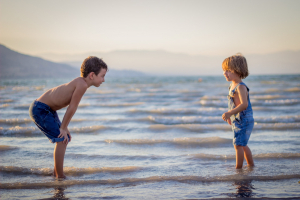 Divorce is a distressing event in which it is common for children to blame themselves for their parents’ separation. They can also feel that because they caused (at least in their own mind) the end of the marriage, they are unlovable
Divorce is a distressing event in which it is common for children to blame themselves for their parents’ separation. They can also feel that because they caused (at least in their own mind) the end of the marriage, they are unlovable
Child custody battles and tensions can make children feel uneasy, anxious, guilty, sad, confused, distressed and overwhelmed – all feelings which need to be processed, ideally with the support of a trained counselor who can teach them how to cope with their feelings and seek outlets in things such as deep breathing, art, music, exercise, journaling and sharing with a good friend or relative about what is happening.
Grief
If grief is distressing to an adult, it is considerably worse for a child, who does not have the perspective, emotional maturity or life experience to wrap their heads around the death of a loved one, be it a person or even a pet. They cannot naturally channel their pain and may develop irrational thought patterns, fearing that they too will die or that someone else they love will leave.
They can also feel guilt and blame for the loss. A counselor can help explain the grieving process to children, that it has different layers and that each person will experience it differently as they move towards healing.
Change
Whether it is changing schools, moving to a new city, being adopted, going to live with another relative, remarriage, or even something seemingly insignificant, change can be traumatic for children, who gain so much stability from the consistency of their daily home life.
While adults may be able to transition more easily as they have the tools to accept changes, children can battle to express how they feel about a change. A big change can lead to anxiety, depression, fear, worry, anger, self-doubt, and low self-esteem, especially if they are not appropriately counseled through their initial reactions.
Self-confidence
When children do not know how to properly process difficult life events, they typically lose confidence in their sense of worth as a person and can start to view themselves in a negative light. This does not have to be as a result of what an adult would classify as trauma, but “mini traumas” such as friendship battles, etc. can damage a child’s self-esteem, depending on their temperament.
A Christ-centered Approach to Child Counseling
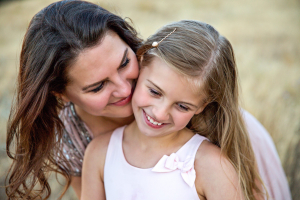 When looking for the right counselor for your child, there are several things to consider. First, the counselor needs to have the correct training and accreditation and, while there are directories of counselors available in different areas, a word-of-mouth referral can be invaluable.
When looking for the right counselor for your child, there are several things to consider. First, the counselor needs to have the correct training and accreditation and, while there are directories of counselors available in different areas, a word-of-mouth referral can be invaluable.
Bear in mind, however, that the chemistry between the child and counselor needs to be right too, so while a friend’s recommendation is helpful, you may need to shop around a bit for a good personality fit. Many counselors offer a free initial consultation so that all parties can gauge whether they think the outcome will be successful.
You also need to consider the types of counseling that they offer. As with adult counseling, Cognitive Behavioral Therapy (CBT) is typically practiced. This method helps children to change negative thought patterns and behaviors by reframing the way they think about issues and events, with the aim being to convert negative ones into positive ones. More specifically, it encourages children to challenge their belief systems, when it comes to how they see themselves and the situation so that they can view things more accurately.
For Christian parents, it is important to realize that any counselor will, unwittingly, impart their own world view to your child, even if they do not base their practice on their faith. A Biblical child counselor will use similar techniques but also be able to speak from God’s truth, which can be extremely comforting to a child.
Every parent requires support to effectively shepherd their child through tough times, and often a counselor can play a critical role in helping to apply the Bible stories and Scripture learned at home to their struggles.
A counselor can help children to rest on the Lord’s solid promises and see their pain through the lens of living in a world broken by sin, yet with the firm hope of the gospel. For it is only through the gospel that true psychological freedom can be found, and this is as true for children as it is for adults. The Christian counselors at Glendale Christian Counseling are here to support children in their journey, helping them find comfort, healing, and strength through faith.
“Rrrrrawr!”, Courtesy of Eddie Kopp, Unsplash.com, CC0 License; “Tug of War”, Courtesy of Anna Samoylova, Unsplash.com, CC0 License; “Siblings”, Courtesy of Limor Zellermayer, Unsplash.com, CC0 License; “Snuggles”, Courtesy of Irina, Murza, Unsplash.com, CC0 License
-
Kate Motaung: Curator
Kate Motaung is the Senior Writer, Editor, and Content Manager for a multi-state company. She is the author of several books including Letters to Grief, 101 Prayers for Comfort in Difficult Times, and A Place to Land: A Story of Longing and Belonging...
DISCLAIMER: THIS ARTICLE DOES NOT PROVIDE MEDICAL ADVICE
Articles are intended for informational purposes only and do not constitute medical advice; the content is not intended to be a substitute for professional medical advice, diagnosis, or treatment. All opinions expressed by authors and quoted sources are their own and do not necessarily reflect the opinions of the editors, publishers or editorial boards of Stone Oak Christian Counseling. This website does not recommend or endorse any specific tests, physicians, products, procedures, opinions, or other information that may be mentioned on the Site. Reliance on any information provided by this website is solely at your own risk.





